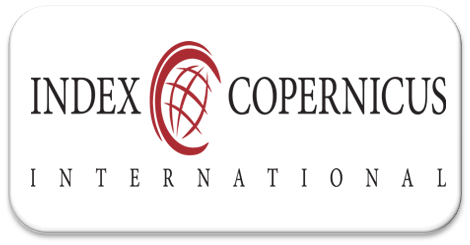Mitologi dan Agama dalam Masyarakat Modern
Abstract
The elimination of myths and religion in modern society has resulted in the despiritualization of religion and the demoralization of spirituality. The predominantly materialistic and positivistic approach of science has created a spiritual and humanitarian crisis, perceiving nature as a lifeless mechanical entity. This perspective contradicts the beliefs of our ancestors who revered nature as a living entity akin to humans. This study elucidates the relationship between myths, religion, and science through the perspectives of Karen Armstrong and Jalaluddin Rumi. Armstrong asserts that myths and religious laws are not true due to their alignment with metaphysical, scientific, or historical realities, but because of their life-affirming nature. Rumi, in his view, illustrates that knowledge that penetrates the soul requires spirit and emanates from the sublime realm beyond reason and words. This perspective amalgamates myths, religion, and science into a unity that respects spiritual existence and regards nature as something far beyond the comprehension of ordinary human beings.
Abstrak
Penyingkiran mitos dan agama dalam masyarakat modern telah menyebabkan dispiritualisasi agama dan demoralisasi spiritual. Ilmu pengetahuan yang cenderung materialistik dan positivistik telah menciptakan krisis spiritual dan kemanusian, menganggap alam sebagai mesin mekanis tanpa kehidupan. Pandangan ini bertentangan dengan kepercayaan leluhur kita yang menghormati alam sebagai entitas bernyawa, seperti manusia. Kajian ini mendeskripsikan hubungan antara mitos, agama, dan ilmu pengetahuan melalui perspektif Karen Armstrong dan Jalaluddin Rumi. Armstrong menyatakan bahwa mitos dan hukum agama bukanlah benar karena kesesuaiannya dengan realitas metafisik, ilmiah, atau historis, tetapi karena sifatnya yang menghidupkan. Rumi, dalam pandangannya, menggambarkan bahwa pengetahuan yang mencapai jiwa memerlukan ruh dan berasal dari alam yang agung di luar nalar dan kata-kata. Pandangan ini menggabungkan mitos, agama, dan ilmu pengetahuan sebagai satu kesatuan yang menghormati keberadaan spiritual dan memandang alam sebagai sesuatu yang jauh melampaui pemahaman manusia biasa.
Keywords
Full Text:
PDFReferences
Angeline, M. (2015). Mitos dan Budaya. Humaniora, 6(2), 190. https://doi.org/10.21512/humaniora.v6i2.3325
Arkoun, M. (1999). Membongkar Wacana Hegemonik dalam Islam dan Post-Modernisme. Diterjemahkan oleh Hasyim Shaleh. Al-Fikr.
Armstrong, K. (2005). A Short History of Myth. Canongate.
Armstrong, K. (2013). Menerobos Kegelapan: Sebuah Autobiografi Spiritual (Yuliani Li). Mizan.
Bagus, L. (2000). Kamus Filsafat. Gramedia Pustaka Utama.
Capra, F. (1997). Titik Balik Peradaban: Sains, Masyarakat dan Kebangkitan Kebudayaan,(terjemahan). In Bentang Budaya. Pustaka Promethea.
Chang, H.-J., & Grabel, I. (2008). Membongkar Mitos Neolib: Upaya Merebut Kembali Makna Pembangunan. INSISTPress.
Chittick, W. C. (2012). Kosmologi Islam dan Dunia Modern (Arif Mulya). Mizan Publika.
Chusnul C. (2021). Ekologi Adat Komunitas Ammatoa (S. Maarif (ed.)). Center for Religious and Cross-cultural Studies.
Dewi, E. (2021). Agama, Mitos dan Sains: Perspektif Masyarakat tentang Covid-19. Substantia: Jurnal Ilmu-Ilmu Ushuluddin, 23(2), 157. https://doi.org/10.22373/substantia.v23i2.10194
Fiamrillah Zifamina, I. (2022). Yang Sakral, Mitos, dan Kosmos. Panangkaran: Jurnal Penelitian Agama Dan Masyarakat, 6(1), 69–86. https://doi.org/10.14421/panangkaran.v6i1.2806
Indonesia, K. A. R. (2013). Al-Qur’an Al-Karim dan Terjemahnya. Halim Publishing dan Distributing.
Iswidayati, S. (2017). Fungsi Mitos Dalam Kehidupan Sosial Budaya Masyarakat Pendukungnya. Harmonia Journal of Arts Research and Education, 8(2), 180–184.
Karen Armstrong. (2002). Sejarah Tuhan: Kisah Pencarian Tuhan Yang Dilakukan Orang-Orang Yahudi, Kristen, dan Islam Selama 4.000 Tahun (Zainul Am). Mizan.
Kulasegaram, K. M., & Eva, K. W. (2020). Science must begin with myths, and with the criticism of myths. In Medical Education (Vol. 54, Issue 1, pp. 2–3). https://doi.org/10.1111/medu.14022
Lenssen, M. C. (1980). Myth and Philosophy: The use of Myth in the thought of Eliade, Schelling and Ricoeur. Northwestern University.
Lévi-Strauss, C. (2003). Myth and Meaning. In Myth and Meaning. First published in the United Kingdom. https://doi.org/10.4324/9780203164723
Loar, C. (2010). The Meaning of Life: ‘Joseph Campbell on The Power of Myth With Bill Moyers.’ Artikel.
Menzies, J. (2013). Belief In an Age of Technology: C.S. Lewis And Joseph Campbell on Myth And Its Application to The Christian Faith a Technological Society (Issue Mei). Salve Regina University.
Nasr, S. H. (1997). Pengetahuan dan kesucian. Pustaka Pelajar.
Piliang, Y. A. (2011). Bayang-Bayang Tuhan: Agama dan Imajinasi. In Bayang-Bayang Tuhan: Agama dan Imajinasi (p. 291). Mizan Publika.
Pramayoza, D. (2021). MELIHAT TEKS LAKON SEBAGAI MITOS: ANALISIS DRAMA DENGAN STRUKTURALISME LEVI-STRAUSS. Melayu Arts and Performance Journal, 4(2), 114. https://doi.org/10.26887/mapj.v4i2.978
Rahner, K. (1975). Encyclopedia of Theology: The Concise Sacramentum Mundi. A Crossroad Book The Seabury Press.
Richards, G. (2011). Psychology, Religion, and the Nature of the Soul. In Psychology, Religion, and the Nature of the Soul (Issue February). https://doi.org/10.1007/978-1-4419-7173-9
Richardson, A; Bowden, J. (1983). A New Dictionary of Christian Theology. SCM Press. https://books.google.com/books?id=TFRYGphPQh4C&pgis=1
Roibin, R. (2010). AGAMA DAN MITOS: Dari Imajinasi Kreatif Menuju Realitas yang Dinamis. El-HARAKAH (TERAKREDITASI), 12(2), 85–97. https://doi.org/10.18860/el.v0i0.445
Rumi, J. (2016). Fihi ma Fihi Mengarungi Samudera Kebijaksanaan (Vol. 4). Forum.
Syaripulloh, S. (2017). MITOS DI ERA MODERN. SOSIO-DIDAKTIKA: Social Science Education Journal, 4(1), 25–35. https://doi.org/10.15408/sd.v4i1.5924
Weiner, E. (2016). The Geography of Faith: Pencarian Tuhan di Tempat-Tempat Paling Religius di Dunia dari Tibet sampai Yerusalem. Penerbit Qanita.
Yuriy Arabov, Aleksandr Sokurov, Marina Koreneva, J. W. von G. (2011). Faust. Aleksandr Sokurov.
Zou, X. (2023). Myth Theory and Structuralism —A Study of Lévi- Strauss’s mythological Research from Myth and Meaning. Social Science, Humanities and Sustainability Research, 4(3), p106. https://doi.org/10.22158/sshsr.v4n3p106
DOI: http://dx.doi.org/10.22373/arj.v3i2.20179
Refbacks
- There are currently no refbacks.
Copyright (c) 2023 Ismir Lina

This work is licensed under a Creative Commons Attribution-ShareAlike 4.0 International License.
INDEX BY:

This work is licensed under a Creative Commons Attribution-ShareAlike 4.0 International License







.png)
1.png)
.png)

.png)










.png)


